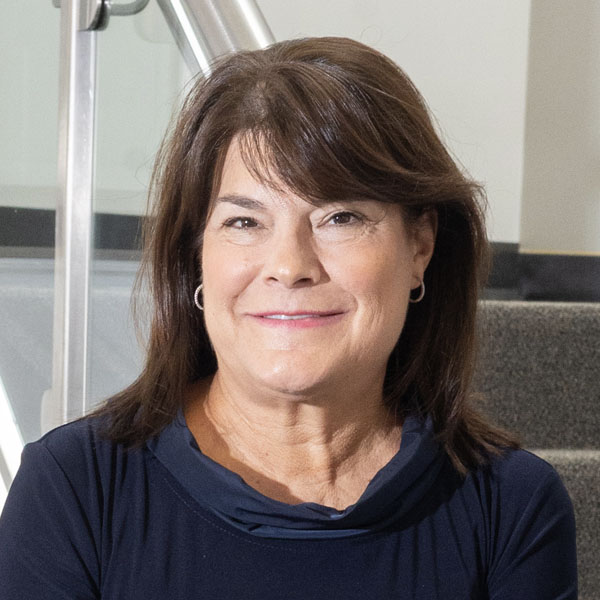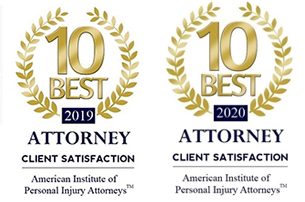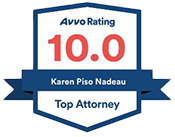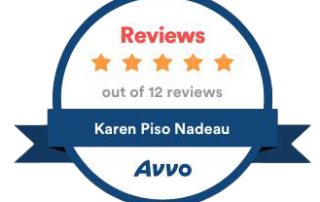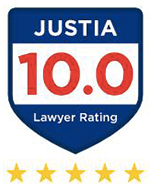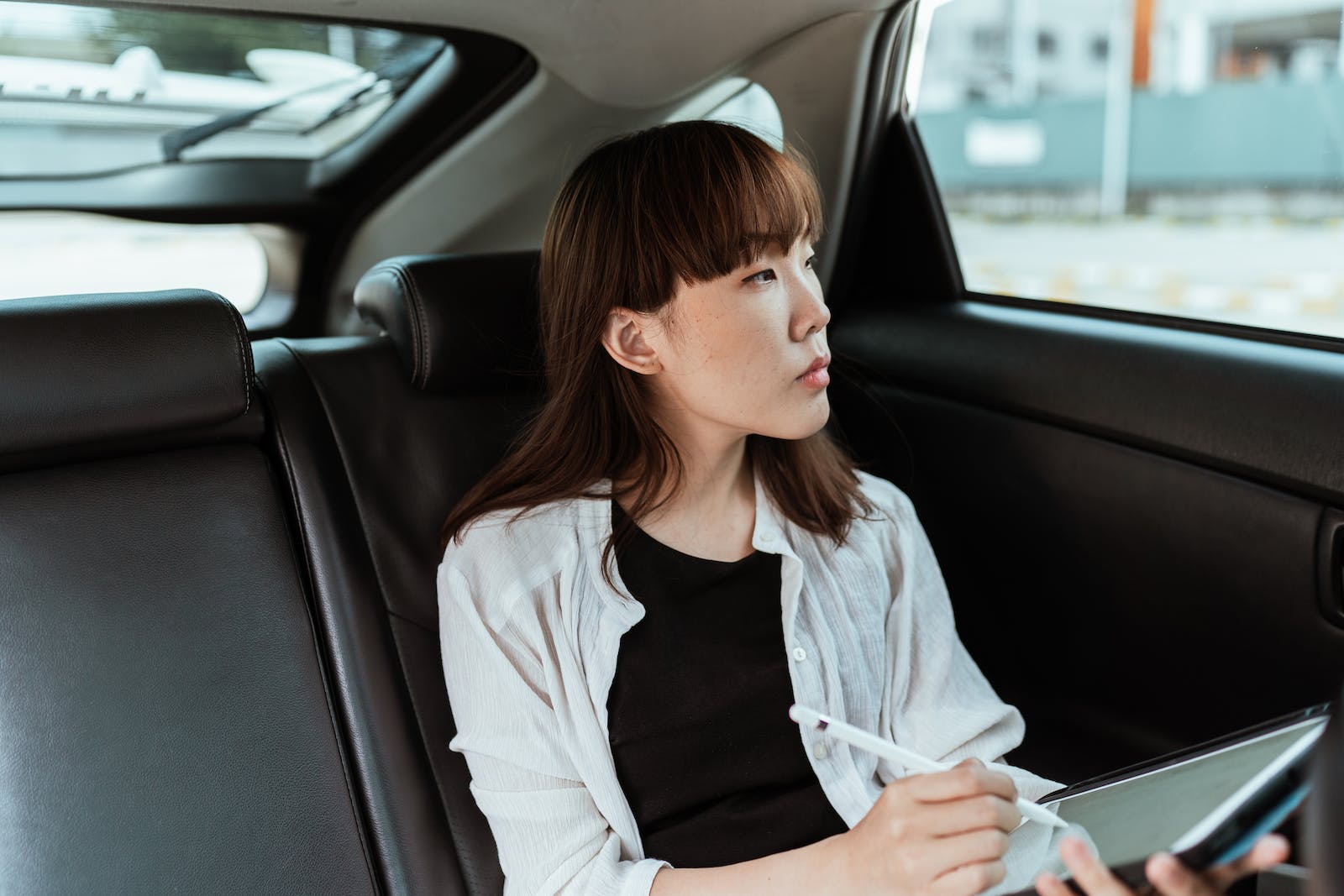
By: Karen Piso Nadeau, Esquire
Drive share vehicles are everywhere and used by many of us to get where we are going. Many of us have the Uber or Lyft applications easily accessible on our cell phones for the moment a drive share vehicle is needed. Ride share as we know it today is travel in a private vehicle for a fee as part of an arrangement made using a website or app. Riders place a request to rideshare by setting a pickup and drop off location using the app. The ride share company, usually Uber of Lyft, matches passengers with drivers of vehicles for hire using the website or app and arranges one way transportation on short notice. Uber and Lyft are the 2 biggest rideshare companies.
We use Uber and Lyft without really thinking about it to get to and from the airport, a favorite Boston restaurant, the local theatres, or sports venues such as The Garden or Fenway. Our teenagers and college kids use Uber and Lyft to get around the city. Most of us assume the ride will be safe and are not thinking about the possibility of being in an accident and what that means if you are dealing with Uber or Lyft. For some passengers riding in an Uber or Lyft vehicle, their worlds were turned upside down at the hands of reckless Uber or Lyft drivers who operated their vehicles in a dangerous manner causing a collision resulting in serious injuries to their passengers.
What You Should Do If You Are Involved in an Accident with Uber or Lyft
If you are involved in an accident while riding as a passenger in an Uber or Lyft vehicle or in a crash with an Uber or Lyft vehicle, there are steps you should take (if safe and well enough to do so) to protect your interests. Here is a list of things you should do:
- Call 911 and get the police on scene to take all necessary information and investigate the crash.
- Secure any information you have about your rideshare. For example, you may have a confirmation on your phone or the name of the driver or vehicle. Save this as sometimes it has valuable information including the identity of the Uber or Lyft driver and proof of your ride.
- If safe, take photographs of the scene, the vehicles involved, and property damage.
- Get any witness names, addresses and phone number and do not rely on police for this as we find police do not always have witness information or refuse to share it with the victim on the grounds of privacy.
- Get the Uber/Lyft driver’s name, address, license information, the plate number and registration of the vehicle and insurance information.
- Get the medical attention you need to address any injuries suffered in the crash.
- If injured, do not talk to any insurance companies until you speak with a lawyer, and call a lawyer right away to protect your interests.
Sometimes our injured clients can’t take these steps due to their injuries and need for emergency medical care.
Uber and Lyft have insurance to cover any accidents involving their drivers while engaged in ride share services. The drivers usually have their own motor vehicle insurance as well. However, the driver’s insurance often denies coverage based on a business use exclusion. Then, you are left dealing with Uber’s and Lift’s insurance companies that are usually quick trying to find ways to avoid paying your claim.
Do Not Be Fooled by Any Uber or Lyft Representative or Insurance Company Pretending to Care about You
As a victim injured at the hands of a negligent Uber or Lyft driver, know this:
The last thing Uber or Lyft wants to do is pay you fair compensation for your injuries and loss.
Uber and Lyft, through their insurance companies, are hard at work doing everything they can to not pay you or minimize your claim and try to pay you as little as possible. They are in the business of avoiding accountability. They want to keep payments to a minimum and their insurance premiums as low as they possibly can. They are concerned about their business, their assets, their reputation and don’t care if you and your family are suffering due to their wrongdoing.
Uber and Lyft’s insurance adjusters may attempt to contact you and ask for a statement pretending to care and help you. Do NOT give them a statement. Do NOT agree to allow them to tape record you. Call a lawyer first to protect you rights right away. Depending on the claim, you may not need to give any statement and may not be legally obligated to do so. An experienced personal injury attorney will know what is best for you and your case.
Ride Share Accident Cases Are Generally Handled Like Any Other Auto Case in MA
Your personal injury case is handled like any other car accident case when Lyft and Uber are involved. The injured party must show that it is more likely than not the Uber or Lyft driver was negligent or deviated from the standard of care in the operation of their vehicle. This is easy to prove when an Uber driver for example drives straight into a concrete barrier in the middle of Boston (a real case we successfully handled) or the Uber driver collides with a bicyclist in a bike lane (another real-life example). The injured party must also show that they suffered damages as a result of the accident. In Massachusetts, accident cases must meet tort threshold to pursue a bodily injury claim for compensation. Typically, this means the victim must incur at least $2,000.00 in medical bills that are reasonable and necessary and related to the accident or meet other criteria such as sustaining a fracture for example.
Like other car crash cases, your case is presented to the insurance company for settlement. Some case can be successfully settled out of court for fair value. Other cases must go through the court process and be filed in court against the ride share driver and ride share company.
Attempts by Drive Share Companies to Avoid Being Held Accountable for Causing Harm to Innocent People
Drive share companies like Uber and Lyft put a lot of their energy in trying to avoid liability, avoid accountability, avoid paying injured victims and avoid publicity. They create ways to limit their exposure and give as little as possible to an injured party. One way they have tried to limit their exposure is by trying to force vulnerable injured victims to arbitrate their injury cases and deny them their right to trial by jury. A Massachusetts Superior Court refused Uber’s attempt to force a catastrophically injured party to arbitrate their case in the case of Good v. Uber Technologies, Inc. et. al., Suffolk Superior Court.
In the Good Case, the court ruled that an Uber passenger did not have to arbitrate his claim against the company. The plaintiff William Good used Uber’s phone app to get a ride home to Somerville from work at a restaurant in Boston. The Uber driver was involved in accident with another vehicle and William Good who was riding as an Uber passenger suffered catastrophic injuries including paralysis. When Good used the Uber app, there was a notice in the form of a pop-up about Uber updating its terms with hyperlinks for “terms of use”. The pop-up is described as a “clickwrap” agreement whereby the user is agreeing to terms by clicking that they accept the terms. However, the app did not specify the terms or require the user like Good to click on the hyperlink ad go through the terms.
In the terms of use, there was a dispute resolution clause requiring arbitration. This would prohibit the injured party from filing their personal injury case in court and litigating the case through the court process and deprive the victim to a trial by jury. When Good filed his personal injury case in court, Uber tried to compel arbitration of his injury case. Good replied that there was no enforceable contract because he did not have reasonable notice of the terms or reasonable manifestation of assent. Good cited another court decision whereby the Supreme Judicial Court found the click wrap agreement did not create an enforceable contract because there was not reasonable notice of its terms nor was there a reasonable manifestation of assent. See Kauders v. Uber Techs., Inc.
The Superior Court held that “there is nothing about the pop-up from which a reasonable user would understand he or she was entering into a contract…”. In the Good Case, Good suffered a severe spinal cord injury and quadriplegic for life. The Uber driver had at least twenty driving citations on his record. Good sued Uber in Superior Court. By forcing arbitration, the ride share companies are trying to force the injured victims to submit to a binding arbitration whereby their case is submitted to usually a single arbitrator who acts as the judge on the case. The arbitrator’s decision is final and can’t be appealed for the most part. The injured party is giving up their rights to use the court system and litigate their case and also give up their right to a trial by jury. This means the drive share company avoids going through the court process and normal discovery process and avoids the car crash case being decided by a jury of one’s peers. All of this is with the purpose of avoiding being held accountable for their bad behavior and avoid being held to the standards that they should be required to uphold.
Another way the drive share companies are trying to avoid accountability is by forcing victims injured in accidents to sign a release with confidentiality language if they settle for a sum of money. This means if they settle their case and the drive share insurance pays them for their harm, they must be silent, and they are prohibited from speaking about the case and settlement. This means the settlements are not public and the wrongdoing by the drive share companies and their drivers is swept under the rug. In addition, some of the releases force the victim to destroy all evidence related to their drive share ride and accident so that evidence can’t resurface later linking the drive share company to their bad behavior.
Often, the drive share companies like Uber or Lyft refuse to settle a case for value and compensate the injured party unless they agree to their terms essentially shutting them up and making the evidence disappear. It seems criminal to withhold money from an injured party and their family who may be suffering and need and deserve the money unless they swear to secrecy to allow the ride share company to hide the settlements they are paying for reckless Uber or Lyft drivers and prevent the public from knowing the truth about the unsafe and bad behavior on Uber’s and Lyft’s clock.
Pedestrians and Bicyclists May Pursue Personal Injury Claims for Compensation If Involved in an Accident with a Drive Share Vehicle
If you are a pedestrian or bicyclist that is struck by an Uber or Lyft vehicle, your personal injury case is handled in a similar manner as any other pedestrian or bike accident case. The drive share vehicle’s insurance typically covers you with Personal Injury Protection (PIP) benefits which are considered no fault benefits up to $8,000.00 for your medical bills and lost wages related to the accident. You also may pursue a bodily injury claim against the negligent ride share driver whereby the drive share’s insurance will cover the loss. Again, Massachusetts law requires you to meet tort threshold to make a claim for compensation against the negligent party. This means you must meet one of the criteria to make a bodily injury claim such as incurring at least $2,000.00 in reasonable and necessary medical bills related to the car accident or suffered a broken bone in the collision for example.
Final Thoughts on Your Rights if You Are Injured as a Passenger, Bicyclist or Pedestrian as a result of a Ride Share Driver’s Bad Behavior
If you are injured at the hands of a drive share vehicle operator such as Uber or Lyft, you have certain legal rights and have the right to pursue a personal injury claim for compensation against the at fault Uber or Lyft driver and the rideshare company. The ride share insurance company will usually step in immediately to investigate, and ultimately it is the Uber or Lyft insurance that compensates you for the harm caused by their drivers. However, be aware that the ride share company’s goal is to avoid paying you or to pay you very little and will do everything they can to not be held accountable.
At Nadeau Harkavy LLC, we start working right away to protect your interests and get you the money you need and deserve. Despite attempts to avoid being held accountable, the courts have not allowed these drive share companies to force victims to arbitrate with their hidden arbitration clauses in their apps. Looking forward, expect ride share companies to continue to look for ways to avoid paying innocent people for their ride share driver’s bad behavior and avoid detection for the losses they cause.
At Nadeau Harkavy LLC, we have over 60 years combined experience representing injured people and their families when they have been involved in an accident. We have recovered millions of dollars in compensation for our clients over the years to help them get on with their lives after suffering the consequences of a serious accident. We make sure everything is done to protect your interests while you and your family concentrate on getting better. We handle all types of accident cases including wrongful death, brain injury, car accidents, bicycle accidents, pedestrian accidents, trip and fall, slip and fall, dog bite, construction site, and catastrophic injury accidents. If you or a loved one has been harmed through no fault of your own, call us today for a free consultation about your legal rights at 617-674-7640.
Meet The Lawyers
With 60 years of combined experience serving injured victims in Massachusetts, our team has collaborated for nearly two decades, delivering a proven track record of outstanding results for clients. Guided by a philosophy of treating clients as we would our own family, we strive to ease our clients' journey from the initial phone call to case resolution. Committed to competing and fighting vigorously, we aim to hold insurance companies accountable to the fullest extent of the law. Our belief in close communication ensures the best possible outcomes, and our approachability makes us readily available to you. Entrust us with your case, allowing you to focus on your physical, emotional, and financial recovery.
Massachusetts Personal Injury Lawyers
Massachusetts Personal Injury Lawyers with over 60 Years Combined Experience Representing Those Injured in Accidents.


